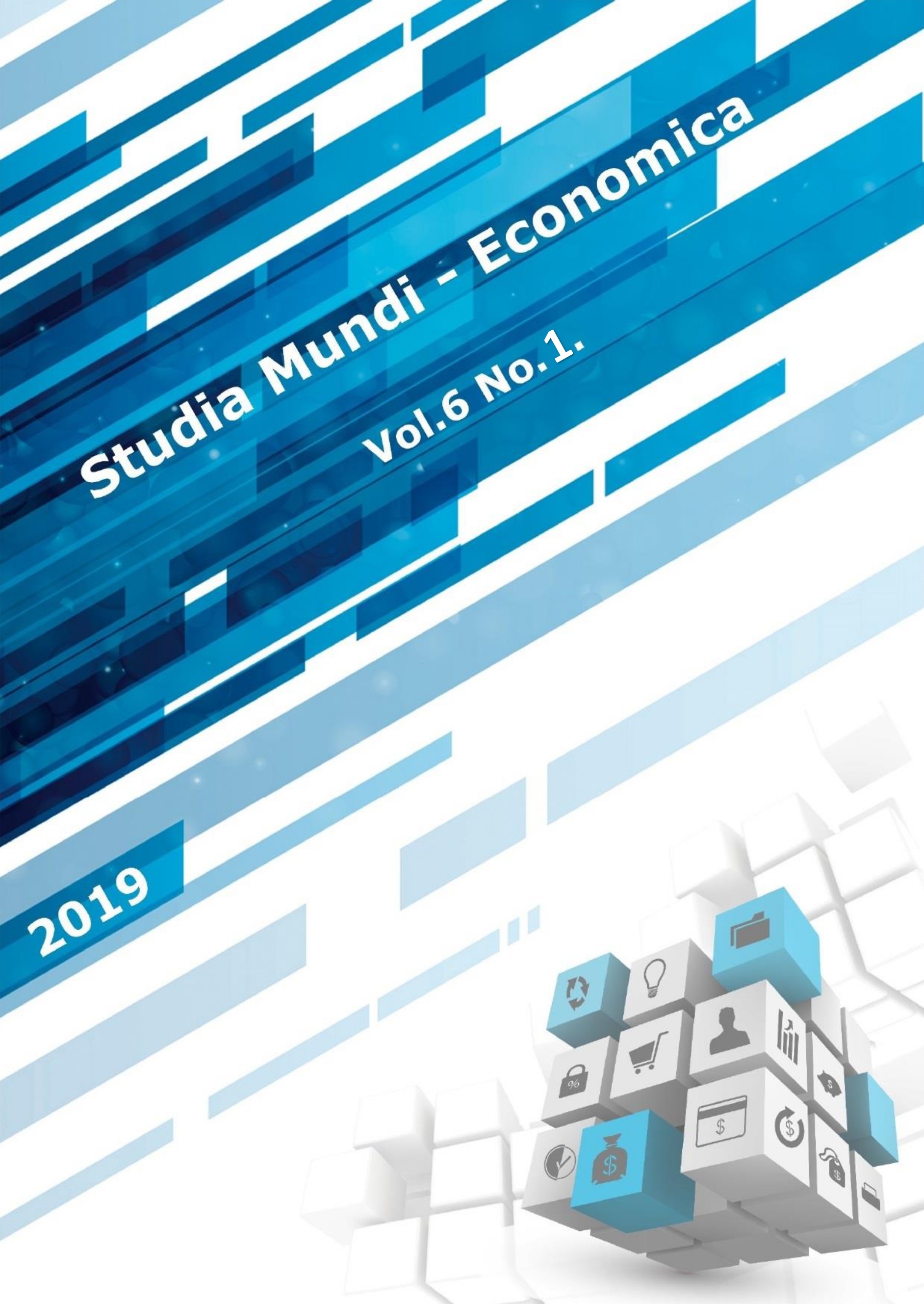The role of universities in educational development in connection with digitalization and entrepreneurship in Hungary
DOI:
https://doi.org/10.18531/Studia.Mundi.2019.06.01.138-154Schlagwörter:
innovation, educational development, digitalization, entrepreneurshipAbstract
Universities can promote the development of entrepreneurial skills and innovation including digital technologies and startup courses. The startups are the drivers of digital development in technological innovation and ICT (OECD 2017). The study attempts to discover that which cooperations are among universities, research institutions and enterprises in Hungary. It is important to examine that what steps have been taken to increase digital and entrepreneurial skills. I made expert interviews, and I carried out a national questionnaire survey involving university students. 62.8 % of students said that there are entrepreneurship courses. In the future 58 students would participate in online entrepreneurship courses. 31.4 % of students consider entrepreneurship education very important (on a scale of 1-10). 32.6 % of the students think that their digital competences are moderate, which would be necessary to launch a startup enterprise. I felt important to talk with teachers to give a more accurate picture about practical trainings for innovation, digital and entrepreneurial skills at the selected universities. According to the interviews making with teachers, the practical tasks are the important parts of entrepreneurial, startup courses everywhere. Students can work in teams on different project ideas.
Literaturhinweise
Ács, Z. – Szerb, L. –Ortega, R. –Aidis, A. R. – Coduras, A. (2015): The Regional Application of the Global Entrepreneurship and Development Index (GEDI): The Case of Spain. Regional Studies, Vol. 49, No. 12, pp 1978-1980
Bakonyi, P. – Cinkler, T. – Csoknyai, T. – Hanák, P. – Kovács, K. – Prikler, L. – Rohács, D. – Sallai, Gy. (2016): Smart City megoldások hat kulcsterületről. Budapesti Műszaki és Gazdaságtudományi Egyetem Egyesült Innovációs és Tudásközpont (BME EIT), p 23, pp 26-28., http://smartpolis.eit.bme.hu/sites/default/files/dokumentumok/BMEEIT%20Smart_City%20megolda%CC%81sok%20hat%20kulcsteru%CC%88letro%CC%8Bl%202016%20A4.pdf. Accessed: 30. May 2017
Buzás, N. – Lukovics, M. (2015): A felelősségteljes innovációról. Közgazdasági Szemle. LXII. évf., Szeged, pp 438-440, http://epa.oszk.hu/00000/00017/00225/pdf/EPA00017_kozgazdasagi_szemle_2015_04_438-456.pdf. Accessed: 04. June 2017.
Cseh, J. – Egervári, D. – Horváth, J. B. – Pankász, B. – Szebenyi, E. – Szellő, J. – Zádori, I. (2017): Digitális kompetenciák és a pályaorientáció munkaerő-piaci összefüggései a 21. században. Kutatási zárótanulmány. „Közösen a jövő munkahelyeiért” Alapítvány, Pécs, pp 5-6, p 9, p 11, p 18, p 26
Dashja, E. – Gareis, K. – Markus, P. – Stabenow, T. (2015a): e-Leadership Skills for Small and Medium Sized Enterprises. Country Report Austria, Bonn and Brussels, http://eskillslead.eu/fileadmin/lead/reports/country_reporst/lead_contry_report_austria.pdf Accessed: 04. June 2017
Dashja, E. – Gareis, K. – Markus, P. – Stabenow, T. (2015b): e-Leadership Skills for Small and Medium Sized Enterprises. Country Report Hungary, Bonn and Brussels, http://leadership2015.eu/fileadmin/lead/reports/country_reports/lead_country_report_hungary.pdf. Accessed: 31. March 2018
EIT Digital (2016): Annual Report 2016. EIT Digital, Brussels, pp 8-9, p 23
Európai Bizottság (2017): Csúcstechnológiai vezetői készségek Európában. Európai Bizottság Belső Piaci, Ipar-, Vállalkozás- és KKV politikai Főigazgatóság, Brüsszel, pp 3-5, p 19, p 22, http://eskills-scale.eu/fileadmin/eskills_scale/country_reports_highship_skills_for_europe_status_may_2017_/high-tech-leadership-skillsmaster_hu.pdf. Accessed: 04. June 2017
European Commission (2015): E-Leadership. Digital Skills for SMEs, Germany, p. 6, pp. 15-17, p. 25, http://eskills-lead.eu/fileadmin/promote/documents/eleadership_digital_skills_fin.pdf Accessed: 05. June 2017
Foray, D. – Raffo, J. (2014): The Emergence of An Educational Tool Industry: Opportunities and Challenges For Innovation in Education. Economic Research Working Paper No. 19, World Intellectual Property Organization (WIPO), p 3, http://www.wipo.int/edocs/pubdocs/en/wipo_pub_econstat_wp_19.pdf Accessed: 02. June 2017.
Gubik, A. – Farkas, Sz. (2017): A felsőoktatási intézmények szerepe a hallgatók vállalkozási hajlandóságának alakításában. „Mérleg és kihívások” X. Nemzetközi Tudományos Konferencia. Miskolc-Lillafüred. pp 544-548 12. Inzelt, A. (2004): Az egyetemek és a vállalkozások kapcsolata az átmenet idején. Közgazdasági Szemle. LI. évf., pp 870-872, http://efolyoirat.oszk.hu/00000/00017/00107/pdf/05MHnzelt.pdf. Accessed: 04. June 2017.
Karpov, A. (2017): The Modern University as a Driver of Economic Growth. Models and Missions. Problems of Economic Transition, Taylor & Francis Group, Vol. 59, nos. 11–12, LLC, pp 922-923
Kollmann, T. - Stöckmann, C. - Hensellek, S. – Kensbock, J. (2016): European Startup Monitor. p 3, p 5, pp 8-9, pp 14-15 , p 85, http://europeanstartupmonitor.com/fileadmin/esm_2016/report/ESM_2016.pdf. Accessed: 02. April 2018
Magyarország Kormánya (2016): Magyarország Digitális Startup Stratégiája. Digitális Jólét Program. Budapest, p 21, p 25, pp 27-30, http://www.kormany.hu/download/d/8c/e0000/Magyarorsz%C3%A1g%20Digit%C3%A1lis%20Startup%20Strat%C3%A9gi%C3%A1ja.pdf. Accessed: 05. March 2018
Makra, Zs. (2012): Az egyetemi spin-off vállalkozások fogalma, létrejöttének folyamat és lehetséges kategorizálásai. IBS Working Paper. International Business School, Budapest, pp. 5-6 http://www.ibsb.hu/data/downloads/2015/09/10/WP4_12_Az_egyetemi_spinoff_v%C3%A1llalkoz%C3%A1sok_fogalma.pdf Accessed: 05. March 2018
Müller, B. – Rammer, C. (2012): Start-up promotion instruments in OECD countries and their application in developing countries, Deutsche Gesellschaft für Internationale Zusammenarbeit (GIZ) GmbH, Bonn and Eschborn, pp. 6-8, http://ftp.zew.de/pub/zew-docs/gutachten/start-up-promotion2012.pdf. Accessed: 30. May 2017.
OECD (2017): Key issues for digital transformation in the G20. Report prepared for a joint G20 German Presidency/ OECD conference. Berlin, Germany, p 10, p 15, p 37, p 44, p 105, http://www.oecd.org/g20/key-issues-for-digital-transformation-in-the-g20.pdf. Accessed: 01. June 2017
Pressonline Kommunikációs Tanácsadó Kft.(2015): Üzleti tanácsok induló kreatív vállalkozók számára. Start Up Guide program. p 48, http://www.sztnh.gov.hu/sites/default/files/sug_art_final.pdf. Accessed: 23 April 2018
Tettamanti, T. – Varga, I. (2016): A jövő intelligens járművei és az infokommunikáció hatása. Magyar Jövő Internet Konferencia. LXXI. évf., pp. 59-61 p 63, https://www.hte.hu/documents/10180/1727937/HT_2016-1_MJIK2015_9_Varga_Tettamanti.pdf
Veugelers, R. - Del Rey, E. (2014): The contribution of universities to innovation, (regional) growth and employment. Prepared for the European Commission. European Expert Network on Economics of Education (EENEE). Analytical Report No. 18, p 36, http://www.eenee.de/dms/EENEE/Analytical_Reports/EENEE_AR18.pdf Accessed: 2 5. February 2018
Vilmányi, M. (2011): Egyetemi-ipari együttműködések a kapcsolatmarketing nézőpontjából. Vezetéstudomány, XLII. évf. 2011/1. szám, http://unipub.lib.uni-corvinus.hu/2559/1/vt2011n1p52.pdf Accessed: 10. March 2017
https://mailchi.mp/870ad47a275a/startup-szerda-ismerd-meg-a-hiventures-befektetsi programjait
Downloads
Veröffentlicht
Ausgabe
Rubrik
Lizenz
Copyright (c) 2019 Mária Molnár

Dieses Werk steht unter der Lizenz Creative Commons Namensnennung - Nicht-kommerziell - Keine Bearbeitungen 4.0 International.
A folyóirat Open Access (Gold). Cikkeire a Creative Commons 4.0 standard licenc alábbi típusa vonatkozik: CC-BY-NC-ND-4.0. Ennek értelmében a mű szabadon másolható, terjeszthető, bemutatható és előadható, azonban nem használható fel kereskedelmi célokra (NC), továbbá nem módosítható és nem készíthető belőle átdolgozás, származékos mű (ND). A licenc alapján a szerző vagy a jogosult által meghatározott módon fel kell tüntetni a szerző nevét és a szerzői mű címét (BY).






